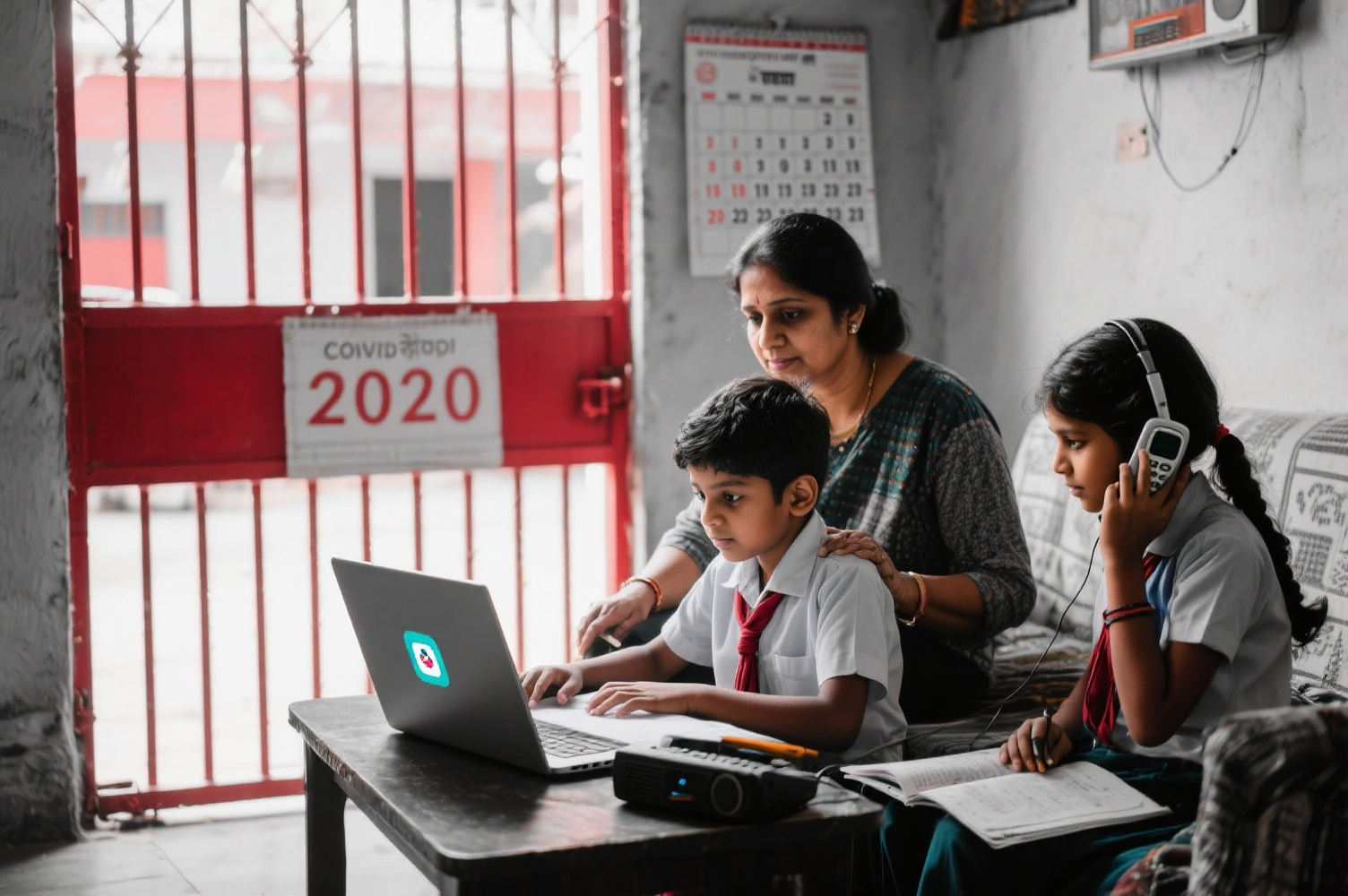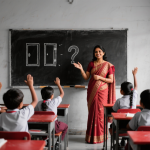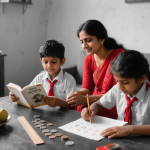- December 12, 2023
- by Educational Initiatives
- Blog
- 0 Comments
The interaction appeared in the BW Education on 29th September 2020
What were your strategies to cope with the impacts of COVID-19 on the teaching-learning process?
The outbreak of COVID-19 has led to multiple challenges in all areas of our lives, including education. Recent number shows that more than 27 crore children have been negatively impacted due to the school closure and that the number of out-of-school children is likely to double (UNICEF). For foundational years, this could lead to learning loss, disrupting educational opportunities which spans a lifetime. Globally, an estimated loss of $10 trillion is accounted to learning loss due to the pandemic (Brookings).
In the COVID-19 scenario, with the schools closed, it was critical now more than ever to reach students from vulnerable backgrounds and ensure they had access to educational resources. Digital learning has also seen a surge among households that have access to smartphones and the Internet. However, it is unclear whether these efforts have led to an increase in learning outcomes. Effective technologies for the future will need to ensure increase both within and outside structured learning environments such as schools, homes, and after school centres.
Educational Initiatives’ built Mindspark to enable children to learn with conceptual clarity. It is interactive and dynamically customizes the content being delivered to match the level and rate of progress made by each student. The current situation demands such personalized self-learning tool that benefits students as they remain physically away from their teachers. Continuous student assessment aids students to learn through practice, explanations and feedback directly on the platform. Making such a platform available to children will ensure that children are engaged and gain proficiency in foundational skills of Language and Math. Due to the challenges of learning in this pandemic, Mindspark online is made available that allows for access on a browser via a unique log-in given to children in the intervention geographies.
With children confined within their home, parents morphed into playing a complementing role in the learning path for their children and in facilitating the Mindspark sessions. They are being provided with topic-wise and weekly reports on their child’s performance. The report had actionable insights on their strengths, learning gaps and a remediation plan was also provided. We also converted out assessments and worksheets which were provided to the students over WhatsApp. For the students who did not have smartphones and were not able to take online lessons, we enabled a voice facility which was easily available in feature phones where they could just listen to stories and have lessons on phone. In between for each category, we have called students to hear their challenges and then come up with relevant solutions accordingly.
What changes do you see coming into the teaching pattern Post-COVID-19?
COVID-19 has challenged and changed the traditional classroom learning pattern and proved that learning is possible from anywhere. The pandemic has fast-tracked the digital transformation in the education sector and it is important for students and educators to inculcate these changes and stay at par with the changing times. There needs to be a greater openness for the use of technology and devices both in the teaching and learning processes.
It is important to consider that rote learning is not taken ahead without making sure that the children understand the syllabus and what is being taught. It is imperative to ensure that the syllabus is not advanced without assessment where the students’ understanding can be tested. As a result, every chapter that is covered, it is important that assessment is done at every step. There is a greater need to understand the child’s current knowledge state before teaching them what the textbook/syllabus is determining which can only be achieved through continuous assessment. We foresee a greater adoption of data-based decision making, personalised learning and learning for meaning and understanding.
Do you find yourself prepared to fight with such a situation in the future and ensure continued learning?
The pandemic has given an opportunity for educators to rethink on the approach of learning. Technology will continue to play a key role in educating. With teachers and students, increasingly familiarising the approach of remote learning or teaching techniques, there will be an increased adoption of blended learning in the future. However, nobody can be 100% prepared for any future calamity, adversity, sea-change that disrupts the teaching-learning process. At Educational Initiatives, we are relatively agile to adapt to what is needed to ensure continuity of learning. We have demonstrated that in the past six months and are well prepared for the future.
What solutions can you suggest to the low-budget schools who can’t afford tech-savvy infrastructure?
COVID had a detrimental impact on over 250 million students in India. Many institutions strived to provide remote learning through user-friendly and innovative pedagogy, to ensure continuity in learning. While it was a concern to move from conventional classroom session to online methods of teaching and learning, many schools managed to adopt online learning. However, smartphone and internet connectivity can be a luxury for many households in India even today.
To reduce the learning loss in foundational skills due to the lockdown and detachment from learning material, first and foremost, it is important for the parents to understand the importance of continued learning. This may or may not be as formal as having a lesson plan in place including homework. This includes working with everyday objects that can be used for counting, identifying shapes, measuring the length of common objects, or one’s own height. Another option is to involve children in everyday transactions of money, groceries, and time that can enable children to create a foundation for critical thinking, logic, and familiarity of using math concepts in everyday life. Parents can also run small experiments at home to spark curiosity and enable for scientific inquiry in children.
At a more standardised level, the government airs educational programmes on TV and radio which can be tuned into. These also require parental support to navigate through and make sense of the content. For those who can afford, there is personalised learning which reaps the maximum benefit. This adapts to the learning level and pace of the child to provide them with customised content that is needed to bridge their learning gaps and move forward. This can also be done at their own pace – more some days, and less on some days. The key to learning is meaningful engagement and continuity.
Nonetheless, there is almost 80 per cent of the population that has a mobile connection, which enables most of the teachers to use SMS, IVR and WhatsApp as tools, to share tasks and topics to parents, so that children can continue to learn as well as take assessments. They are also using voice calls to interact with children over the phone.
Though, it is crucial for government and educators to identify and reach out to these vulnerable children, who do not have access to technology and enable them with basic technology so that they can continue learning. While these techniques can be a temporary solution, with the lockdown extensions, it will be challenging for teachers to facilitate quality content, engage and provide personal attention to students.



